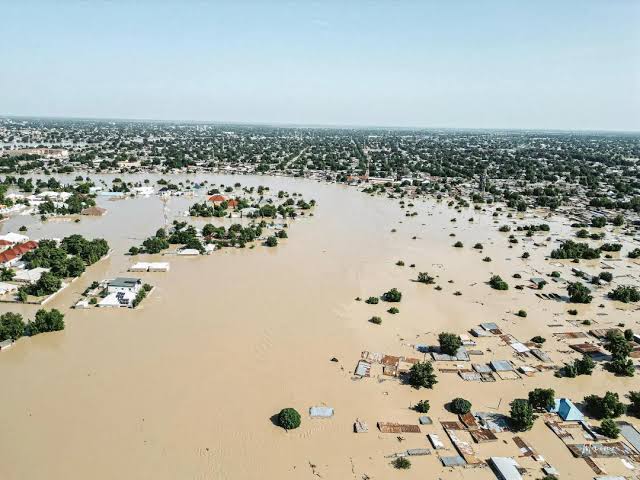September 10 remains a day etched in our memory by Aisha Yusuf Sabo

BY AISHA YUSUF SABO, SEPTEMBER 10, 2025 | 07:28 PM
We read about floods from a safe distance, forgetting that survival itself is a privilege. If you are a resident of Maiduguri reading this, then give your thanks to the Almighty. You have survived the 10th September flood that claimed 150 lives.
On Tuesday, September 10, 2024, Maiduguri woke to the sound of rushing water invading homes, shops, and streets. The city, already vulnerable and scarred by over a decade of humanitarian crisis from the Boko Haram insurgency, was brought to its knees by a deluge, the worst since 1994.
In no time, parts of the city were submerged. Roads turned into rivers, traders lost goods worth millions, and homes were reduced to ruins, displacing over 400,000 residents.
The disaster, caused by the collapse of the Alau Dam, resulted in unprecedented devastation. Critical infrastructure, including bridges, roads, electricity systems, healthcare facilities, and schools, was severely damaged. Floods are not just natural disasters but are also acts of neglect by governments that fail to plan and by communities that refuse to change harmful habits. The collapse occurred largely because prior alarms from environmentalists were ignored. The culture of dumping refuse into drainage channels and disregarding building regulations had also worsened the situation.
Now if all we do is mourn and move on, it will become just another line in the long list of unfortunate incidents. True honour lies in ensuring it never happens again. September 10, 2024, should be remembered not only for its grief but as the day we chose accountability over complacency. We cannot afford the reoccurrence of such tragedy.
Appeal for support
Conflict Reporting is dangerous and risky. Our reporters constantly face life-threatening challenges, sometimes surviving ambushes, kidnap attempts and attacks by the whiskers as they travel and go into communities to get authentic and firsthand information. But we dare it every day, nonetheless, in order to keep you informed of the true situation of the victims, the trends in the conflicts and ultimately help in peace building processes. But these come at huge cost to us. We are therefore appealing to you to help our cause by donating to us through any of the following means. You can also donate working tools, which are even more primary to our work. We thank you sincerely as you help our cause.
Alternatively, you can also email us on
info@yen.ng or message us
via +234 803 931 7767


